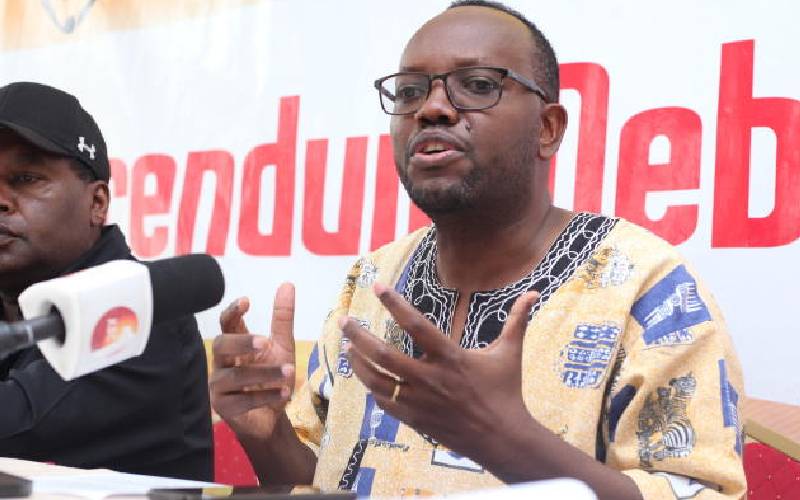×
The Standard e-Paper
Fearless, Trusted News

John Wamagata National Coordinator Operation Ondoa Panya andMorris Odhiambo President National Civil Society Congress during a press briefing. [Wilberforce Okwiri,Standard]
The capture of democratic institutions in Kenya has threatened civil liberties and inclusive development, a new report by a democracy and governance think tank has revealed. The report released on Wednesday notes that well-heeled individuals have taken away people’s power to determine who leads the country.







